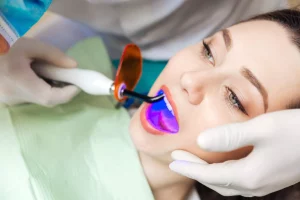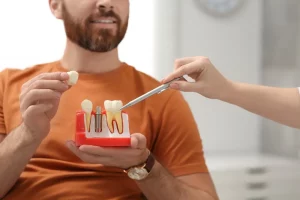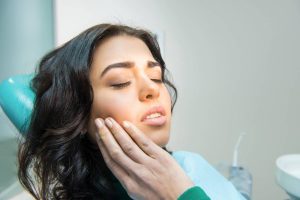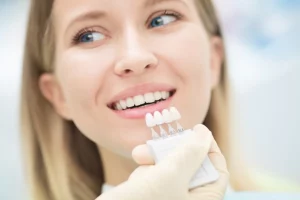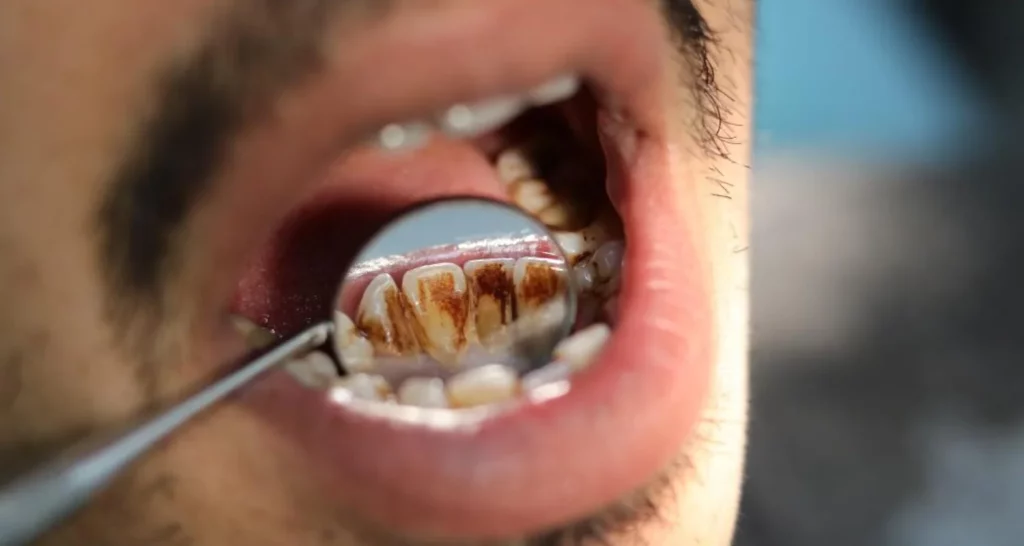Last Updated on: 14th noviembre 2025, 03:22 am
Dental treatment in children with autism
Dental care is the leading unmet health issue for children with special needs. According to the American Psychiatric Association , across all economic sectors, children with special needs are nearly twice as likely to lack dental care as their peers without special needs.
Although autism is not characterized by any specific oral health condition, autistic individuals often present with more oral disease than individuals of similar age without autism. Furthermore, it is associated with a higher prevalence of problems related to harmful habits, such as bruxism, self-injury of the tongue, lips, and gums, biting, and similar issues, due to the tendency toward self-harm that these individuals may exhibit.
ORAL MANIFESTATIONS OF AUTISM SPECTRUM DISORDER
People with autism have a large number of mannerisms and harmful habits related to the mouth:
- Some may exhibit self-harming behaviors such as hurting their gums, biting their lips, or causing ulcerations.
- Some drugs for anxiety, behavioral problems, schizophrenia and manic episodes, and epilepsy, among others, produce side effects that affect salivary secretion, decreasing it and causing dry mouth or xerostomia, which leads to an increased risk of cavities and gum problems such as hyperplasia.
- Poor oral hygiene due to the difficulty some children/caregivers have in implementing home care.
As a consequence of all these harmful habits, malocclusion occurs more frequently, and problems arise in the main functions of the stomatognathic system: phonation, swallowing and chewing.
HOW DOES AUTISM SPECTRUM DISORDER AFFECT CHILDREN’S ORAL HEALTH?
Autistic children may be at greater risk of oral disease due to their reduced ability to understand or participate in their daily hygiene and cooperate with preventive programs, especially in those cases undergoing drug treatments to address anxiety, behavioral problems, schizophrenia and manic episodes, and epilepsy, among others.
These children often base their lives on the repetition of routines, patterns, or rituals and may explode in a tantrum of deep frustration if there is a change in this daily routine. This highlights the need to establish a systematic desensitization program or dental protocol prior to dental treatment, so that the child is always aware of the steps to follow and becomes familiar with the environment and the work routine.
Brushing teeth is part of everyone’s daily hygiene routine. For people with autism, it can be a significant challenge, as they often experience several difficulties (they are bothered by the sensation of having a wet face, find the texture or taste of toothpaste unpleasant, and sometimes don’t know how to spit). Therefore, autistic children should visit a pediatric dentist as soon as possible to help them become familiar with brushing and establish an oral hygiene routine.
BEFORE THE CONSULTATION
Communication with both parents and child is vital before beginning any dental treatment to reduce anxiety for both and assess the child’s readiness. It’s important to gather as much information as possible about the patient’s needs, the child’s previous experiences, and recommendations on how best to work with their child. Once this information is collected, desensitization materials are prepared, consisting of images, videos, or both, of the dental office and the staff. The parents then present this information to the child.
Familiarizing autistic children with the dentist and their team can help achieve oral health goals. These children sometimes cannot express their feelings and perceptions (fear, pain, etc.), which makes managing them more challenging.
If this is your child’s first visit, it might be helpful to introduce them to the team beforehand, showing them what will be used and how it works. Take a short walk around the office, showing them around, so they can become familiar with the furniture, fixtures, and instruments. Children with autism need consistency and regularity in their environment. At Channel Islands Family Dental, we strive to maintain a pleasant (relaxed and comfortable) atmosphere.
DURING THE CONSULTATION
It is important to note that the presence of parents or educators encourages the child’s cooperation during the consultation, as well as allowing the child to familiarize themselves with the materials from the preparatory sessions at the educational center. The use of more restrictive techniques to maintain the patient’s calm is generally limited to more serious cases, with general anesthesia used as a last resort. The first appointment should be brief and positive, as should the last; patients should be seen in the early hours of the day, when both the professional and the patient are not physically or mentally fatigued.
We will recommend using the following tools as appropriate:
- Bringing comfort items will help occupy and/or distract them.
- For children who are sensitive to lighting, wearing sunglasses could alleviate the glare from the dentist’s lamps.
- For boys sensitive to sounds, the use of headphones (either to eliminate noise or to listen to music) could alleviate their fears and provide comfort.
AFTER THE CONSULTATION
After the child’s oral health has been restored, specialist dentists can provide individualized preventive programs to reduce the risk of oral disease. They will also guide parents on how to continue these procedures at home.
It is recommended to eat healthy meals and avoid sugary and sticky foods, and to remember that hard foods require more vigorous chewing, which stimulates saliva flow. Also, in order to maintain oral health and, therefore, the quality of life of these children, the importance of attending regular checkups will be explained to them.
HOME CARE FOR PATIENTS WITH AUTISM
If the child is able to brush their teeth independently, we will teach them to do so using techniques such as pictograms, etc. We will always choose the type of accessories and brushing technique that best suits the child’s needs.
We recommend placing items in a fixed location and helping to foster the habit of brushing teeth after every meal. Try to teach your child neither too quickly (they may become confused by the instructions) nor too slowly (they may lose focus). It’s helpful to use visual aids (pictograms) to make it clearer what is being asked of them. Place the pictogram in an easily accessible location so the child doesn’t forget and can integrate the depicted activity into their daily routine.
CONTACT US: DENTAL TREATMENT FOR CHILDREN WITH AUTISM
It is essential to remember that with an autistic child there is no room for improvisation, and to help you and provide you with a better experience, visit Channel Island Family Dental .
If you have any questions about this or other topics, you can contact us at Channel Island Family Dental , as well as on our Facebook page . At Channel Island Family Dental, we will be ready to assist you during your visit to ensure an early diagnosis. Likewise, our dentists in Oxnard , Santa Paula , Ventura , and Port Hueneme will be happy to guide you and offer the best treatment to restore your smile.
Dental treatment for children with autism, Dental treatment for children with autism, Dental treatment for children with autism, Dental treatment for children with autism, Dental treatment for children with autism, Dental treatment for children with autism, Dental treatment for children with autism, Dental treatment for children with autism, Dental treatment for children with autism, Dental treatment for children with autism, Dental treatment for children with autism, Dental treatment for children with autism, Dental treatment for children with autism, Dental treatment for children with autism







